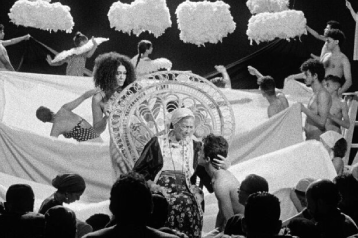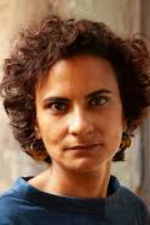

Original name: East of Noon
English name: East of Noon
Year: 2024
Run time: 109 minutes
Language: Arabic
Type (Colour/ Black & white): Colour
Country: Egypt, Netherlands, Qatar
Director: Hala Elkoussy
Producer: Hala Elkoussy, Abdelsalam Moussa, Lonnie Van Brummelen, Marc Thelosen
Cast: Menha El Batraoui, Ahmed Kamal, Omar Rozeik, Fayza Shama
Screenplay: Hala Elkoussy
Cinematographer: Abdelsalam Moussa
Editor: Bobbie Roelofs, Hala Elkoussy
Sound Designer: Abdalrahman Mahmoud, Jaim Sahuleka
Music Composer: Ahmad Elsawy
Production Designer: Hala Elkoussy
Production Company: Nu'ta Film, VRIZA, seriousFilm
World Sales: Pascale

Egyptian artist Hala Elkoussy works across many media – photography, video, installations, sculpture and film – and her work has been collected by leading international galleries such as the Tate Modern in London and Stedelijk in Amsterdam. At home, she established Fotomasr, an Egyptian photographic historical archive. Her first feature, Cactus Flower, premiered in Rotterdam, while East of Noon went to this year’s Cannes Directors’ Fortnight.
East of Noon is a satire on the inner workings of an ailing autocracy and its inherent vulnerability to youth’s unchained vision of a better world. The story unfolds in two spaces: SHARQ12, a sandy enclave situated in an industrial ruin; and the Sea, a fluid landscape and simultaneously a longed for state of freedom. How do you imagine the sea when you have never seen it?
The characters embody a core personal question: How is hope kept alive in a grim reality? They struggle with fear in quest for a freedom that is instinctive, but ill-defined, with a hovering dilemma: can one stay clean in a dirty world? It is the young artist Abdo who most longs for freedom. His music is his saviour. The stories of his grandmother Jalala provide further relief from the hopeless reality, but also perpetuate the status quo, reflecting the complex relationship of art to authority.